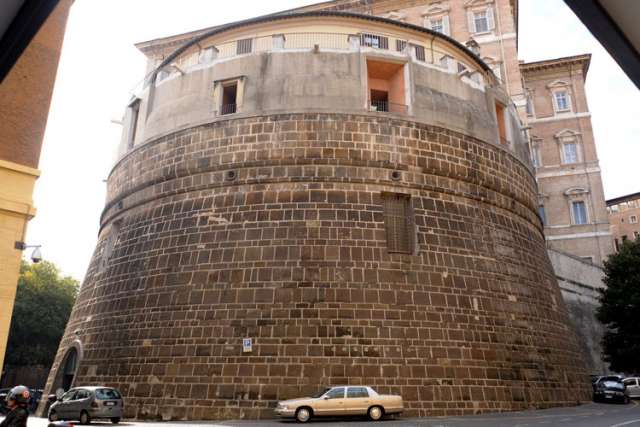The Vatican’s Financial Information Authority, known as the AIF, recorded a “notable” rise in shady transactions at the Vatican bank, rising from six in 2012 to a whopping 202 in 2013. Of this total, five cases were referred to the Vatican’s own judicial authorities (the Vatican Promoter of Justice) for further investigation.
AIF director Rene Bruelhart said that doesn’t mean there are more shady transactions, but rather that the bank has a better monitoring system.
“What it means is that the reporting system works,” Bruelhart said as he presented the organization’s annual report to reporters on May 19. “We are talking here about suspicious behaviour; we are not talking about penal investigations.”
The numbers, while intriguing, are more notable for the fact that they are being released at all. The Vatican bank, officially known as the Institute for Religious Works, released detailed reports on its accounts for the first time just last year, part of a bid by Pope Francis to ensure greater transparency and accountability at the Holy See.
Bruelhart said the AIF recently conducted its first on-site inspection of the Vatican bank to verify new measures to prevent and counter money laundering and financing of terrorism since a new Vatican law was introduced last October.
Bruelhart stressed that the AIF was working with international institutions, and some accounts were being monitored on a long-term basis.
“It’s a work in progress,” he said. “You reach out to international partners and seek information. You build a proper case controlling and monitoring.”
The AIF said it made 28 requests for information from foreign authorities, up from just one request in 2012. Likewise, the number of requests it received from foreign institutions rose from just three in 2012 to 53 in 2013.
“We are not an island here,” he said. “It’s important to have international co-operation.”
Bruelhart, a Swiss lawyer, said the AIF had co-operated with the Bank of Italy and foreign institutions on a total of 80 cases.
The number of cash withdrawals above 10,000 euros fell from 1,782 in 2012 to 1,557 last year; there were 550 declarations for cash deposits above the 10,000 euro amount, compared with 598 in 2012.
The Vatican bank, which has been plagued by scandals since it was founded in 1942, earned 86.6 million euros ($120 million) in 2012 and has assets totaling 6.3 billion euros ($8.6 billion). It handles accounts for all Vatican departments and its employees, as well as for religious orders and diplomats to the Holy See.
The bank has recently been embarrassed by the case of Msgr. Nunzio Scarano, a former Vatican accountant who’s facing trial for an alleged plot to smuggle millons of euros in cash into Italy. He is under house arrest in Salerno, facing charges of money laundering and making false statements.
Two former Vatican bank directors are also facing trial for money laundering in Italy. Bruelhart declined to comment on a German report due to be published in the Bild Zeitung May 20 that the AIF is investigating ex-secretary of state Cardinal Tarcisio Bertone on allegations of transferring 15 million euros ($20 million) through the Vatican bank.


